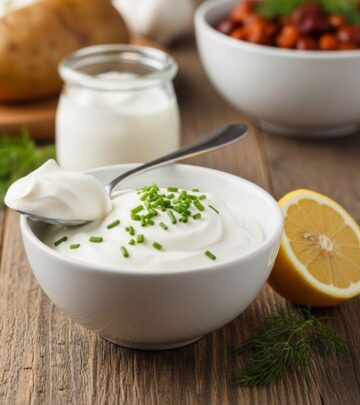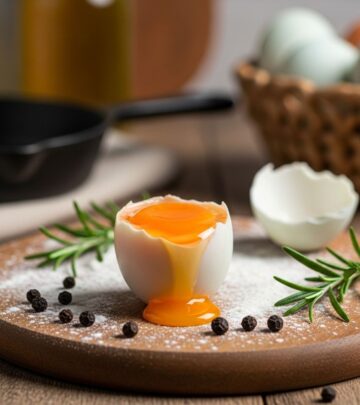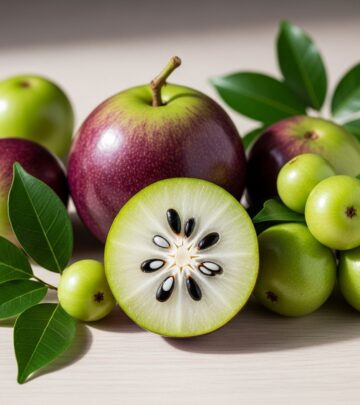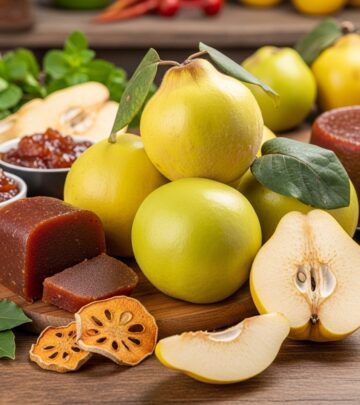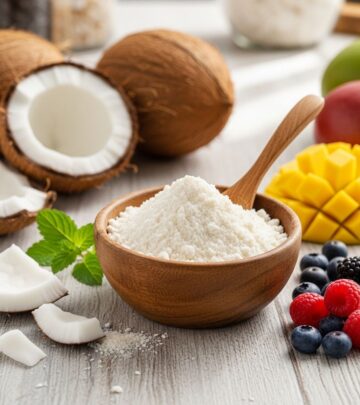Kokum Butter: Benefits, Uses, and How to Incorporate It into Your Routine
Melts on contact to deliver lasting hydration and reduce inflammation from head to toe.
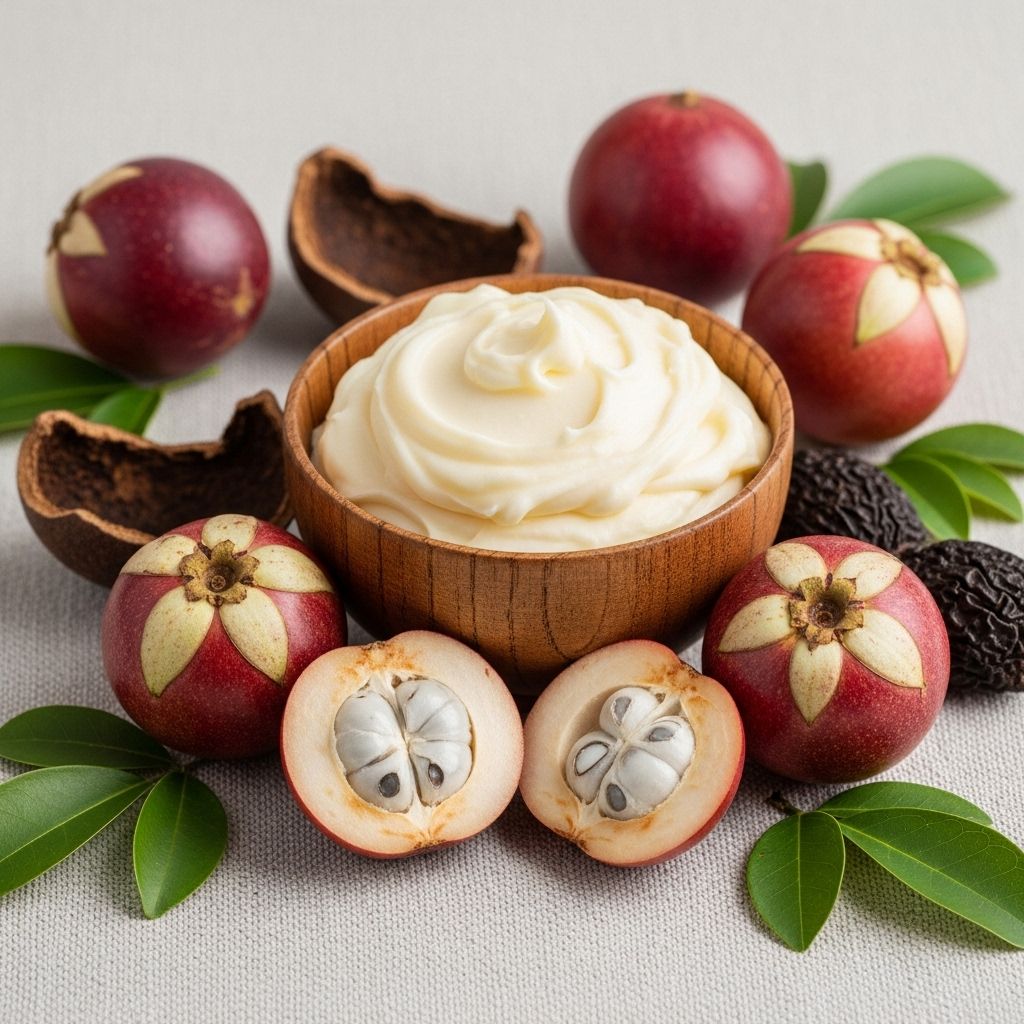
Kokum Butter: An Introduction
Kokum butter, derived from the seeds of the Garcinia indica tree, is a nutrient-dense, non-comedogenic botanical widely celebrated for its emollient, restorative, and anti-inflammatory properties. It is pale grayish-yellow in color and commonly used in beauty, wellness, and culinary applications. Recognized for its ability to deeply moisturize and regenerate skin without clogging pores, kokum butter has gained increasing popularity in natural skincare and hair care formulations.
What is Kokum Butter?
Kokum butter is a solid, plant-based fat extracted from the seeds of the kokum fruit, native to regions in Asia and Africa. Known also as wild or red mangosteen, kokum contains a high concentration of fatty acids, antioxidants, and essential vitamins that support both skin and systemic health.
- Physical Properties: Hard and brittle at room temperature, with a high melting point, and melts easily on skin contact.
- Color: Pale gray to yellowish.
- Edibility: Used in some curries and candies as a cocoa butter alternative.
- Other Names: Wild mangosteen, red mangosteen
Core Nutritional Components
Kokum butter is loaded with nutrients that offer multiple benefits for skin, hair, and overall health.
- Essential Fatty Acids: Rich in both omega-3 and omega-6 fatty acids, helping sustain healthy skin cell membranes and supporting barrier function.
- Vitamin E: Potent antioxidant that protects against free radicals and supports immune, skin, and eye health.
- B-Complex Vitamins: Useful for cellular metabolism and energy.
- Minerals: Contains potassium, manganese, and magnesium.
| Nutrient (per 1 Tbsp) | Amount |
|---|---|
| Calories | 120 |
| Protein | 0 grams |
| Fat | 14 grams |
| Saturated Fat | 8 grams |
| Carbohydrates | 0 grams |
| Fiber | 0 grams |
| Sugar | 0 grams |
Kokum Butter Benefits
Kokum butter benefits your skin and hair in numerous ways, making it a valuable ingredient for a wide range of personal care formulations.
- Deeply Hydrating: Penetrates and moisturizes skin without leaving greasy residue.
- Skin Cell Regeneration: Aids in healing skin cracks, ulcers, chapped lips, and hands.
- Anti-Inflammatory: Soothes irritation, redness, and swelling, including inflamed or sensitive skin.
- Non-Comedogenic: Won’t clog pores, suitable for acne-prone and sensitive skin.
- Restores Elasticity: Helps reduce the appearance of scars, age spots, and tired skin.
- Antibacterial: Contains compounds with antibacterial effects, useful in traditional wound care.
- Antioxidant Protection: Defends against environmental stressors and free radical damage.
- Fights Signs of Aging: Reduces fine lines and wrinkles, restores softness and elasticity.
Benefits for Sensitive and Dehydrated Skin
- Gentle Alternative: Suits those who react to most skin care products due to its mild nature.
- Quick Absorption: Rapidly absorbed by the skin, leaving no sticky or greasy residue.
- Natural Moisturizer: Alleviates dry skin and reduces flakes effectively.
Benefits for Hair
Kokum butter has gained traction as a restorative treatment for damaged or dry hair. Its chemical composition closely resembles that of cocoa butter, making it a popular addition for moisture and shine.
- Lightweight Moisturizer: Replenishes hair moisture without weighing down the scalp.
- Promotes Shine: Adds a natural, healthy sheen to hair strands.
- Scalp Health: Protects against dryness, flaking, and irritation.
Kokum Butter vs. Other Butters
| Kokum Butter | Shea Butter | Cocoa Butter | |
|---|---|---|---|
| Comedogenic Rating | Low (non-comedogenic) | Low | Medium |
| Texture | Hard, brittle, melts on contact | Soft, creamy | Firm, melts on contact |
| Key Benefits | Regenerates, anti-inflammatory, lightweight | Hydrates, heals, anti-inflammatory | Moisturizes, protects, antioxidant |
| Best Uses | Face creams, balms, hair masks | Body butters, lotions, soaps | Lip balms, chocolates, body lotions |
| Scent | Mild, almost odorless | Nutty | Chocolatey |
- Emollient Properties: Kokum and shea butters are both exceptional for keeping skin soft and hydrated. They are also used for healing and soothing inflamed skin.
- Cocoa Butter Comparison: Kokum butter’s composition is similar to cocoa butter and is used as its replacement in some culinary applications.
How to Use Kokum Butter
Kokum butter’s solid texture and high melting point allows it to be versatile in both DIY and commercial products for skin and hair care, as well as in culinary recipes.
- Skincare:
- Whipped body butters
- Creams and balms
- Lip balms
- Soaps
- Hair Care:
- Moisturizing hair masks
- Shampoo bar additive
- Scalp balms
- Culinary Uses:
- Alternative to cocoa butter in candies, chocolates, and curries
- Kokum rind for sour flavor in chutneys and curries
- Kokum juice beverages
- Substitute for tamarind in recipes
Usage Tip: Melt kokum butter before mixing it with other oils or ingredients. Its hardness requires blending or gentle heating for most preparations.
DIY Kokum Butter Recipes
- Whipped Body Butter: Blend kokum butter with coconut oil and essential oils for a luxurious, non-greasy moisturizer.
- Healing Balm: Combine kokum butter, beeswax, and almond oil to soothe cracked heels, elbows, and lips.
- Hair Mask: Mix kokum butter with avocado oil and apply to damp hair to restore moisture and shine.
Side Effects and Precautions
- Generally Safe: Kokum butter is mostly safe for topical use and ingestion in food recipes.
- Allergic Reactions: Individuals with sensitivities to botanical butters should do a patch test before widespread use.
- Moderation in Diet: As a high-fat food ingredient, kokum butter should be consumed in moderation.
Where to Buy Kokum Butter
Kokum butter is relatively rare outside of Asia but can be found through specialty retailers, online stores, and shops focused on natural ingredients. Its growing appeal in the wellness industry suggests greater availability in the near future.
Frequently Asked Questions (FAQs)
Q: What makes kokum butter unique compared to other butters?
A: Kokum butter is non-comedogenic, deeply moisturizing, highly regenerative, lightweight, and virtually odorless, making it excellent for sensitive and acne-prone skin.
Q: Is kokum butter safe for daily use?
A: Yes, kokum butter is suitable for everyday application for skin and hair. Always patch test when trying a new ingredient.
Q: Can kokum butter be used on the face?
A: Kokum butter can be used in facial creams and balms thanks to its low comedogenic rating and anti-inflammatory effects.
Q: Is kokum butter edible?
A: Yes, it is edible and sometimes used as a substitute for cocoa butter in confections and as an ingredient in curries and candies.
Q: Where is kokum butter commonly found?
A: Kokum butter is native to Asia and Africa and can be sourced online, in specialty stores, or through retailers focused on natural beauty or culinary ingredients.
Expert Tips for Maximizing Kokum Butter Benefits
- Layer with Other Oils: For extra richness and easier absorption, blend with jojoba, almond, or avocado oil.
- Ideal for Sunscreen Formulations: Its stability and regenerative properties support sun-exposed skin.
- Mix in Natural Extracts: Boost healing and antioxidant effects with calendula, chamomile, or vitamin C.
- For Best Results: Use regularly and store kokum butter in a cool, dry place to preserve integrity.
- Combine with Shea or Cocoa Butter: Create custom blends for varied texture and benefits.
Summary of Kokum Butter Benefits
- Nutrient-rich and high in essential fatty acids
- Supports skin cell regeneration and wound healing
- Deeply hydrates without greasiness
- Anti-inflammatory and antibacterial properties
- Restores elasticity and fights signs of aging
- Safe and effective for sensitive, acne-prone, and dry skin
- Lightweight hydration and shine for hair
- Versatile in culinary and personal care recipes
References
- https://bettersheabutter.com/kokum-butter-benefits/
- https://www.potionorganic.com/en-us/blogs/news/why-you-should-be-using-kokum-butter-on-your-skin
- https://www.webmd.com/diet/health-benefits-kokum-butter
- https://www.healthline.com/nutrition/kokum-butter
- https://www.christopherobin.com/my-advice/advice/what-are-the-benefits-of-kokum-butter-for-hair/
- https://www.barakasheabutter.com/blogs/baraka-blogs/kokum-butter-vs-shea-butter-benefits-uses-compared
- https://myemollient.com/blogs/news/kokum-butter
- https://www.shoprythm.com/blogs/skin-care/kokum-butter-vs-shea-butter-whats-better-benefits-uses-compared
Read full bio of Sneha Tete


